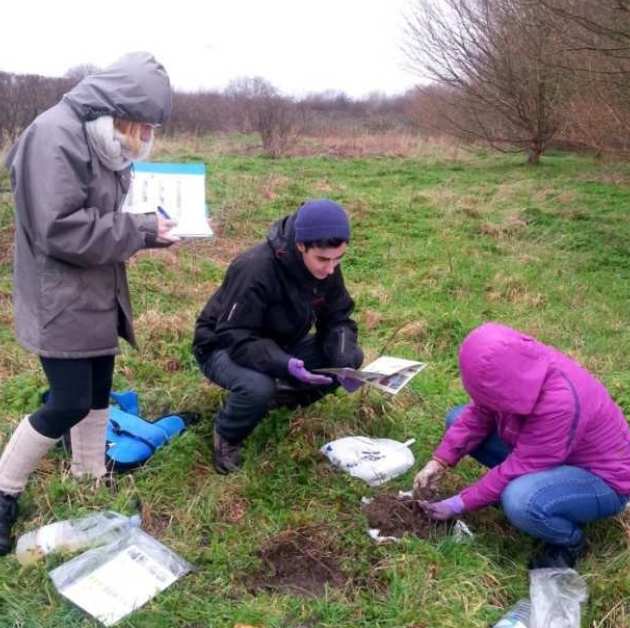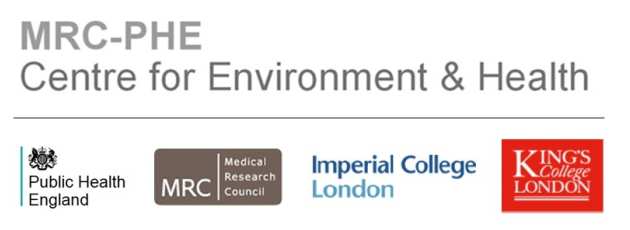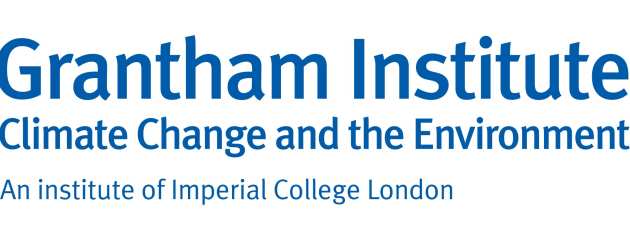From air pollution to the spread of vector-borne diseases, changes in our environment have profound repercussions on human health.
Health Option overview
The Health and the Global Environment (HGE) Option is offered in collaboration with a highly qualified network of practitioners that encompasses the Centre for Environmental Policy, the MRC-PHE Centre for Environment and Health and the Grantham Institute - Climate Change and the Environment. The option focusses on building students’ knowledge and understanding of the key issues that link human and environmental health.
This is a highly dynamic and stimulating environment in which to study, where you will interact with a range of PhD students, staff scientists and policy analysts working on the most pressing environmental and health issues both locally and globally.
Further information

Human health is fundamentally linked to our environment. For example, environmental factors are a root cause of the global disease burden, particularly in developing countries. An estimated 25% of death and disease globally is linked to environmental hazards, this figure reaches 35% in regions such as sub-Saharan Africa. Many of these hazards are created or exacerbated by human activities, so managing health for the environment and the environment for health is a growing priority on the public and global health agenda.
Some key opportunities for improving human health include:
- Improving water quality, sanitation and hygiene could prevent an estimated 1.7 million deaths annually, particularly children in developing nations.
- Eliminating indoor smoke from solid fuels could prevent 1.6 million deaths every year due to respiratory diseases.
- Improving the design of irrigation and water systems, housing, waste disposal, water storage and reducing deforestation and biodiversity loss could help reduce the global burden of infectious diseases - including malaria, which causes over 1.2 million deaths annually, mostly African children under the age of five.
- Preventing acute poisonings associated with the inappropriate use of toxic chemicals and pesticides in industry and agriculture could save 355,000 lives globally each year (the majority in developing countries).
-
Climate change impacts including extreme weather events (heat waves, floods), changed patterns of disease and effects on agricultural production, are estimated to cause 150,000 deaths annually – forecasts suggest that climate change could become the greatest health challenge in human history with the potential to reverse the gains in health we’ve so far achieved
Addressing many serious health risks will also improve environmental health, for example:
- Tackling urban air pollution generated by vehicles, industries and energy production could help mitigate climate change and reduce direct health impacts - approximately 7 million people die prematurely from air pollution annually.
- Reducing deforestation could help reduce the burden of disease and prevent biodiversity loss.
- Preventing chemical pollution would reduce human exposure to carcinogens and restore ecosystem functions, preventing the loss of ecosystem services such as the provision of fresh water
The Health and the Global Environment (HGE) Option is designed to develop students’ knowledge and understanding of the key issues in environment and health. The emphasis throughout the course is on the understanding of the principles of exposure assessment, epidemiology, toxicology, health risk assessment and health protection, and their application in the field of environment and health, including:
- field sampling and laboratory analysis for direct determination of contaminants within environmental systems;
- practical experience of the use of key methods to assess environmental impacts on health;
- exposure to major global public health challenges, and the stakeholders involved in tackling these issues.
The option content covers four main themes:
Theme 1: Managing the Environment for Health
Considers the causes of environmental perturbation and approaches to resource management in a global context.
Theme 2: Environmental Decision-Making and Tools
Introduces important policy tools and techniques to assist in decision-making.
Theme 3: Quantifying Exposure and Health Impacts
Develops understanding of the principles and tools for qualitatively and/or quantitatively characterising health risks and impacts related to environmental sources.
Theme 4: Health and the Global Environment
Introduces key concepts in global health and global environmental change, their interactions and impacts, and identify opportunities for co-management.
Fieldwork
Students complete two assessed pieces of coursework. The first is undertaken in collaboration with the Environmental Analysis & Assessment and Water Management options of the MSc, and provides a "real-world" case study of contaminated land and water on Hounslow Heath, near Heathrow Airport, in close collaboration with the London Borough of Hounslow Council. 
The other case study is specific to the Health and Global Environment option, and provides the opportunity for students to apply their developing knowledge to an emerging problem within the field of health and the global environment. These client-based projects vary from year to year, with past topics including:
- Waste Electrical and Electronic Equipment and Health (with the International Solid Waste Association)
- Public health and environmental issues associated with shale gas extraction (with Public Health England)
- Evaluating the effectiveness of current heatwave interventions (with the Committee on Climate Change)

The ultimate aim of the Health and Global Environment option is to prepare students for employment in consultancies, regulatory agencies, industry, research or non-governmental organisations where a holistic understanding of environment and health issues is vital. Our alumni have found employment in government departments, consultancies, universities and NGOs.
“The experience I gained while studying the Health and Global Environment option really advantaged me in my career as a Health Impact Assessment consultant. Understanding the key concepts relating to topics covered such as epidemiology and exposure assessment is vital when linking health with planning. Although my focus is in the UK, one of the major benefits of the option is that it covers public health issues and management techniques in both the developed and developing world, giving students the opportunity to work anywhere.” Tara Barratt, Assistant Consultant, RPS Planning & Development
“The health option provided me with a broad understanding of environmental public and global health issues, and armed me with the skills to assess these in the real world context. One main benefit of the course was the close links with industry... visiting lecturers allowed us to meet experts in the field, and for me, provided an opportunity to collaborate with Public Health England on my thesis project. The epidemiology lectures and tutorials were extremely useful for my research, and the case study project provided essential policy experience. Both experiences were key to me gaining employment as a Policy Officer. I am now working in a field closely related to my thesis topic.” Stephanie Tham, Department of Environment, Land, Water and Planning, Victorian Government, Australia.
“Learning in the health option gave me an excellent opportunity to understand environmental issues in the health perspective. It also provided an excellent platform to get in touch with experts and people working in the same area. I am now working in the UN Environment dealing with short-lived climate pollutants, and the experiences give me enough knowledge and strength to focus on this topic. Although my current work does not directly relate to health, it supports me to understand and explain environmental issues more comprehensively, especially in science-policy communications.” Hanxiang (Hank) Cong, Project Consultant, UN Environment, Climate & Clean Air Coalition


